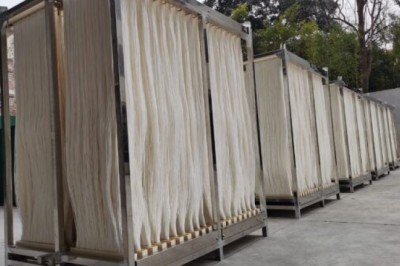views

DACHSER creates additional air freight capacity
The war in Ukraine, embargoes and airspace closures are also impacting global air freight operations. Global air freight capacity has decreased by around 20 per cent. In light of this, Germany-based DACHSER Air & Sea Logistics is offering its customers additional capacity in this situation and is operating an additional weekly charter flight on the Frankfurt Shanghai route over the next three weeks.
The charter plane will operate once a week between Europe and Asia, carrying around 100 tonnes per flight.
About the move, Timo Stroh, head of global air freight at DACHSER, said, "We are monitoring developments closely and have reacted quickly to the current capacity bottleneck on the route between Shanghai and Frankfurt. With this additional offer, we provide our customers with a stable and reliable service in troubled times."
Air Freight Bottlenecks
The Frankfurt-Shanghai route is currently riddled with bottlenecks in air freight capacities. "The capacity situation at our core air cargo locations in Hong Kong and Shanghai, as well as at our European gateway in Frankfurt, remains stable," Stroh said. "Nevertheless, there would still be impacts and closures in Hong Kong due to Corona outbreaks."
Suspended flight schedules and no-fly zones due to EU sanctions against Russia and the conflict in Ukraine are currently leading to increasing transit times and an overall reduction in air cargo capacity. The rising oil prices are also exacerbating the situation. However, regular charter traffic in the DACHSER air freight network, as well as customer charters between Europe and Asia, could currently take place as planned for the most part. "Despite the dynamic developments and influences on the transport and logistics market, the performance of our air freight network remains stable and resilient," Stroh said.












